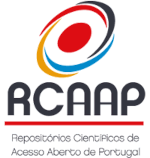Psychological well-being of higher education nursing professors: Scoping review protocol
DOI:
https://doi.org/10.62741/ahrj.v2i4.66Keywords:
Psychological well-being, University, Faculty, nursingAbstract
Introduction: Workplace well-being is essential for professionals’ health and satisfaction, influencing organizational success. Among lecturers, including nursing faculty in higher education, high demands and publication pressure compromise well-being, with high levels of emotional exhaustion identified. Promoting well-being is crucial for student success, professional performance, and healthy academic environments. Therefore, it is essential for institutions to integrate development programs that include well-being promotion strategies, recognizing the workplace as a strategic setting for health and disease prevention, thereby improving teaching quality and professional satisfaction.
Objectives: To map scientific evidence on the psychological well-being of higher education faculty.
Methodology: Scoping review protocol based on Joanna Briggs Institute and PRISMA-ScR®. Research conducted in August 2025 using the descriptors “psychological well-being", “mental health”, “emotional well-being", “life satisfaction”, “burnout”, “stress”, “resilience”, “nursing faculty”, “nursing professors”, “nursing educators”, “academic staff”, “higher education”, “university” and “college” in MEDLINE Complete® (via PubMed®), SCOPUS®, CINAHL Complete®, Cochrane Database of Systematic Reviews®, MedicLatina® (via EBSCOhost®), and Consensus®. Studies on the psychological well-being of nursing faculty in higher education, in English, Spanish, or Portuguese, available in free full text, were considered. Selection will be done in Rayyan® by two independent reviewers, with a third reviewer resolving disagreements. Data will be organized in tables by the authors. Registered in Open Science Framework® (DOI: 10.17605/OSF.IO/N7YHP).
Conclusion: This scoping review will map the available evidence on the psychological well-being of nursing faculty in higher education, highlighting key constructs, risk and protective factors, and knowledge gaps to support future research and institutional strategies.References
Carvalho MC. The well-being of teachers and non-teaching staff in the light of inclusive education [dissertation]. Madeira, Portugal: University of Madeira; 2021. Available from: https://digituma. uma.pt/bitstream/10400.13/3949/1/Tese%20final%20-%20M%C3%B3nica%20Carvalho%20-%202011416.pdf
Teixeira C, Barroso I, Freitas A, Rainho C, Monteiro MJ, Antunes C. Psychological well-being and problematic internet use in adolescents. Port J Ment Health Nurs. 2022;(28). https://doi.org/10.19131/rpesm.350 DOI: https://doi.org/10.19131/rpesm.350
Gast I, Neelen M, Delnoij L, Menten M, Mihai A, Grohnert T. Supporting the well-being of new university teachers through teacher professional development. Front Psychol. 2022;13:866000. https://doi.org/10.3389/fpsyg.2022.866000 DOI: https://doi.org/10.3389/fpsyg.2022.866000
Varela R, della Santa R, Oliveira HM et al. Weariness, living conditions and work in Portugal: a multidisciplinary perspective. Rev Estud Seculo XX. 2020;(20):183-210. https://doi.org/10.14195/1647-8622_20_9 DOI: https://doi.org/10.14195/1647-8622_20_9
Kiltz L, Rinas R, Daumiller M, Fokkens-Bruinsma M, Jansen EP. 'When they struggle, I cannot sleep well either': perceptions and interactions surrounding university student and teacher well-being. Front Psychol. 2020;11:578378.
https://doi.org/10.3389/fpsyg.2020.578378 DOI: https://doi.org/10.3389/fpsyg.2020.578378
Larson LM, Seipel MT, Shelley MC et al. The academic environment and faculty well-being: the role of psychological needs. J Career Assess. 2019;27(1):167-82. https://doi.org/10.1177/1069072717748667 DOI: https://doi.org/10.1177/1069072717748667
Rossi VA, Martins MDCF, Tashima-Cid DP, Dias M. Reflections on subjective well-being, psychological well-being and well-being at work. Rev Organiz Contexto. 2020;16(31):151-75. https://doi.org/10.15603/1982-8756/roc.v16n31p151-175 DOI: https://doi.org/10.15603/1982-8756/roc.v16n31p151-175
Wu, P. L., & Ho, H. H. (2023). Predictors of Teaching Self-efficacy in Clinical Nursing Teachers: A Cross-sectional Study. Florence Nightingale Journal of Nursing, 31(1), 33–41. https://doi.org/10.5152/FNJN.2023.22179 DOI: https://doi.org/10.5152/FNJN.2023.22179
Hammoudi Halat D, Soltani A, Dalli R, Alsarraj L, Malki A. Understanding and fostering mental health and well-being among university faculty: a narrative review. J Clin Med. 2023;12(13):4425. https://doi.org/10.3390/jcm12134425 DOI: https://doi.org/10.3390/jcm12134425
Peters MDJ, Marnie C, Tricco AC et al. Updated methodological guidance for the conduct of scoping reviews. JBI Evid Synth. 2020;18(10):2119-26. https://doi.org/10.11124/JBIES-20-00167 DOI: https://doi.org/10.11124/JBIES-20-00167
Tricco AC, Lillie E, Zarin W et al. PRISMA extension for scoping reviews (PRISMA-ScR): checklist and explanation. Ann Intern Med. 2018;169(7):467-73. https://doi.org/10.7326/M18-0850 DOI: https://doi.org/10.7326/M18-0850
Ouzzani M, Hammady H, Fedorowicz Z, Elmagarmid A. Rayyan - a web and mobile app for systematic reviews. Syst Rev. 2016;5:210. https://doi.org/10.1186/s13643-016-0384-4 DOI: https://doi.org/10.1186/s13643-016-0384-4
Munn Z, Peters MDJ, Stern C, Tufanaru C, McArthur A, Aromataris E. Systematic review or scoping review? Guidance for authors when choosing between a systematic or scoping review approach. BMC Med Res Methodol. 2018;18:143. https://doi.org/10.1186/s12874-018-0611-x DOI: https://doi.org/10.1186/s12874-018-0611-x
Downloads
Published
Issue
Section
License
Copyright of published papers is assigned to the Journal, but all content is licensed under the terms of Creative Commons Non-comercial 4.0 International License. Thus users are allowed to read, download, copy, distribute, print, search, or link to the full texts of the articles, or use them for any other lawful purpose, without asking prior permission from the publisher or the author. This is in accordance with the BOAI definition of open access.














